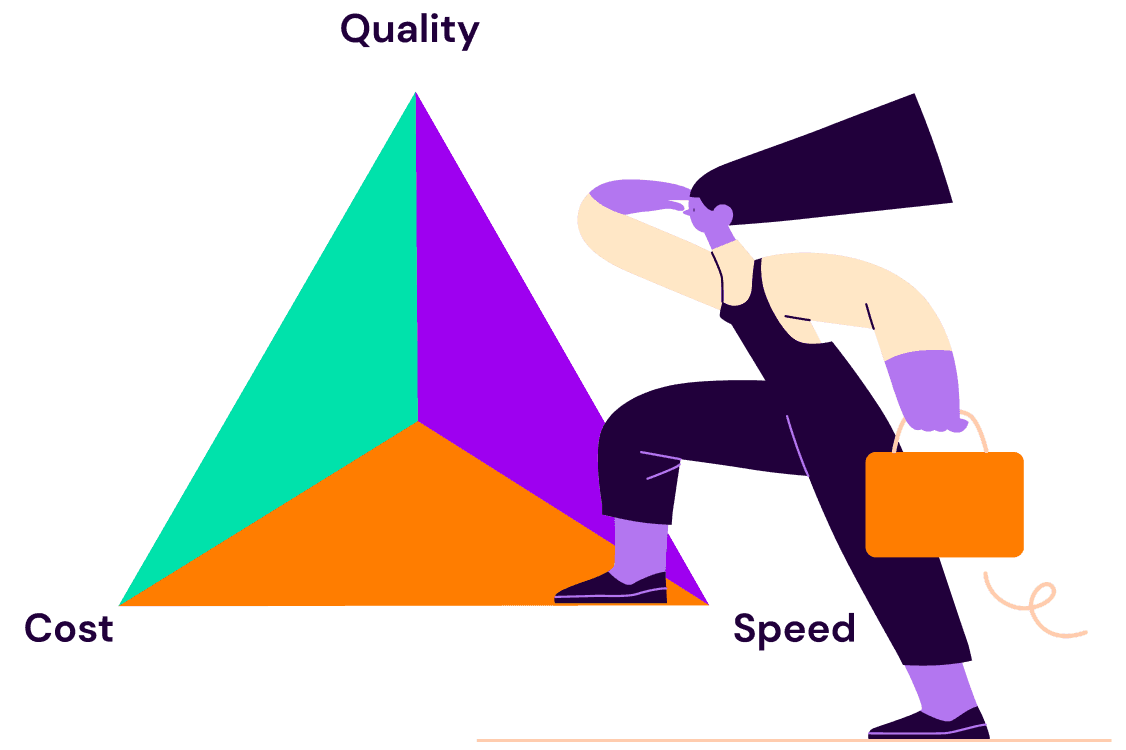
Back to blogs
SeekOut's Talent Visionaries series features innovative leaders and their extraordinary work in creating and scaling high-performing teams. The personal philosophies and invaluable insights of these workplace champions offer new perspectives in an ever-evolving talent landscape.
Dustin Cann has built an incredible career in talent acquisition and HR technology, striving to shift paradigms across roles as a vendor and as a practitioner. He is the Senior Director of Talent Acquisition Strategy & Enablement at Splunk, a cybersecurity and observability leader that helps organizations keep their digital systems secure and resilient.
On the journey to finding what you love
Many people fall into talent acquisition (TA) without planning to do so—including me. I spent time in HR systems implementations consulting, then pre-sales and sales engineering. When I moved from vendor to practitioner, it was no longer about encouraging other people to do things, but actually doing the work myself. That’s when I knew I was doing what I loved.

“I get to help people build their careers while helping organizations become more representative of the diverse communities where we operate. It’s meaningful work.”
Identifying and solving problems that improve people’s lives is incredibly motivating for me. As a TA leader, I get to help people build their careers while helping organizations become more representative of the diverse communities where we operate. It’s meaningful work.
On how HR impacts the business
For many years, the industry has discussed HR creating impact by getting a seat at the table. And what I’ve found that works is to make the problems you want to solve and the solutions you want to use relevant to the business. HR challenges compete with a lot of priorities, but if you can show how your solutions align with business goals—how you’re helping the organization generate revenue and take care of talent, customers, and partners—the C-suite will start to pay attention. Then it’s easier to get the green light to implement solutions for the business.

“Show how [HR problems] align with business goals—how you’re helping the organization generate revenue and take care of talent, customers, and partners—the C-suite will start to pay attention.”
Here’s a tangible example: increasing representation. Diversity, equity, and inclusion work is within the scope of HR and greatly affects business outcomes. Business leaders are held accountable for revenue, profit, and customer retention—and it’s important that DEI priorities aren’t considered a “nice to have.” Helping the business understand the impact of DEI on the bottom line helps empower a shift in how organizations operate and make decisions. This creates meaningful progress toward increased representation from all communities that drives important business outcomes.
One of my favorite books is “Working Backwards,” written by former Amazon employees about understanding what you are driving towards and how to get there. The strategies and mechanisms it offers have helped me think about how to prioritize work and show how talent acquisition is driving impact for the business.
On what’s ahead in 2023 for talent acquisition
The current macroeconomic climate means organizations are once again challenged to do more with less. It can be difficult, but it can also be healthy. In easy economic times, organizations are more likely to allow processes and models to expand. Now is an opportunity to reevaluate, determine what HR needs in order to be successful partners, and ensure its work is relevant to the changing business needs. This means evaluating spend and focusing on where HR can have quantifiable impact.
Just as HR is challenged to hone its value to the broader organization, it is also equally granted the opportunity to articulate the employee value proposition to a changing market. What makes your organization’s culture compelling, and how can you stand out from the noise?
On leading through an evolving talent market
For leaders outside of talent acquisition, I encourage you to think of the long term. Recruiting, rehiring, calibrating, and educating all take time to help ensure productivity.
My advice to fellow TA leaders is first take a minute to breathe as things can be difficult and are often cyclical. Your work is important. And by demonstrating how your work is relevant to the business, you’ll have your seat at the table.
Improve representation in your organization with SeekOut
Learn how SeekOut Recruit helps you build more diverse talent pools and address unconscious bias in the hiring process. Check out our buyer's guide to learn about evaluating DEI recruiting solutions for ROI and impact, speed, operational efficiency, accuracy, and more.
See us in action
Learn how SeekOut unifies people data to help organizations reach their talent goals
Request a demo




